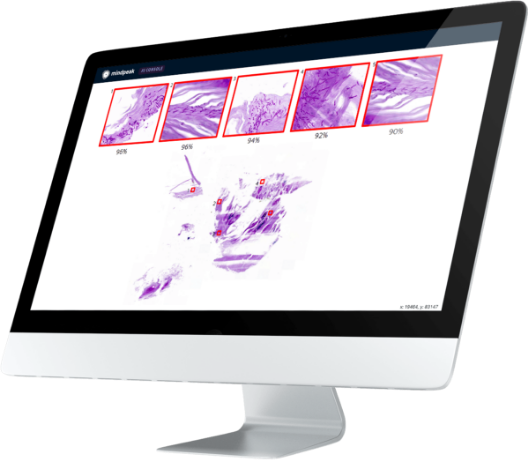HIMSS: Mindpeak as part of the digital revolution in healthcare

AI beyond the buzz
Artificial Intelligence (AI) in healthcare is expected to revolutionise the sector. Expectations are high and since 2015 the number of medical algorithms approved by the FDA has grown exponentially. We can see it in this interesting infographic designed by Dr. Bertalan Mesko (@Berci), known as the Medical Futurist, which shows that in 2014 only AliveCor’s algorithm for the detection of atrial fibrillation was approved, and then in recent years dozens of algorithms have burst onto the scene with the go-ahead of the FDA, among them, products from Apple and Verily.
However, the hype in which AI has been involved has left us some disappointments. But in recent years, a great number of startups and healthcare organisations are getting tangible results in AI applied to different medical fields. The most common ones are image analysis and detection of cardiac anomalies in patients. At the beginning of January, Nature published a paper that showed that AI outperformed human doctors at diagnosing breast cancer. An international team of researchers that included professionals from Google Health and Imperial College London trained a computer model to analyse images from 29,000 women. The software was superior at spotting cancer and at avoiding false positives. Apart from the superiority, we should not forget that AI systems can work tirelessly.

FASTER AND MORE ACCURATE
AI startups are receiving important funding from investment firms. This is the case of Mindpeak, a German company that developed Breast IHC, a diagnostic tool that counts tumour cells and differentiates between tumour and non-tumour cells. “Nowadays, pathologists count 100-200 cells in order to score certain cancer attributes. That takes several seconds to minutes. With our AI, the pathologist can count 2000 cells in a fraction of the time. That makes the work faster and more accurate” explains Felix Faber, CEO of Mindpeak. The solution has been propelled thanks to partnership with large labs, which have given them access to 25M slides. The solution is being used in research projects in multiple centres in Germany and the company is planning to grow across Europe when they have the CE-IVC clearance next summer.
Source: The Medical Futurist
In a more advanced regulatory state is the solution Neurocloud, a platform that integrates algorithms for the analysis of neurological images. The software identifies brain anomalies by comparing healthy and pathological brains and helps specialists “reduce the number of errors and increase the efficiency of healthcare systems”, says CEO Daniel Fernández. Neurocloud was developed by QuoBiotech, a spin-off from Santiago de Compostela’s public Healthcare Research Institute. The company has the CE clearance for its product and expects FDA approval by the second half of 2020. Neurocloud is being used in hospitals in Spain and Portugal and they have gained “great acceptance among the neurology and medical imaging community” says Fernández. When asked about how AI will change medicine in the next five years, Daniel Fernández responds that their adoption and routine use will take longer than that. However, “in medical imaging AI is already a reality and can help providing early diagnosis or analysing the effectivity of certain treatments.”
AI FOR PERSONALISED HEALTHCARE
Another field in which AI is going to have a key role is in the analysis of huge amounts of health data. The analysis will deliver insights and will allow us to make predictions. The European program Horizon 2020 is investing large sums in this particular field. One of the projects is ASCAPE (Artificial Intelligence Supporting Cancer Patients Across Europe), which is launching at the end of the month in Athens, and will include a number of pilots in Europe to analyse how personalised health services can improve patients’ quality of life. 2.000 cancer patients will participate donating their - previously anonymised - data for research.
One of the research studies will take place in Barcelona and will monitor 150 breast cancer patients from hospital and various primary care centres. Patients will use the mobile app Xemio that will collect data from their symptoms and lifestyle. Behind the app is Fundación Isys and Imma Grau (@Inma_Grau), an ex-breast cancer patient and an engineer that in the last five years has been working on the app. “The project will use Real World Evidence. We expect that researchers will be able to find a correlation between treatments and quality of life and obtain personalised recommendations for the patients.”
Read full article here.
Find out more about our AI-based diagnostics




.webp)

